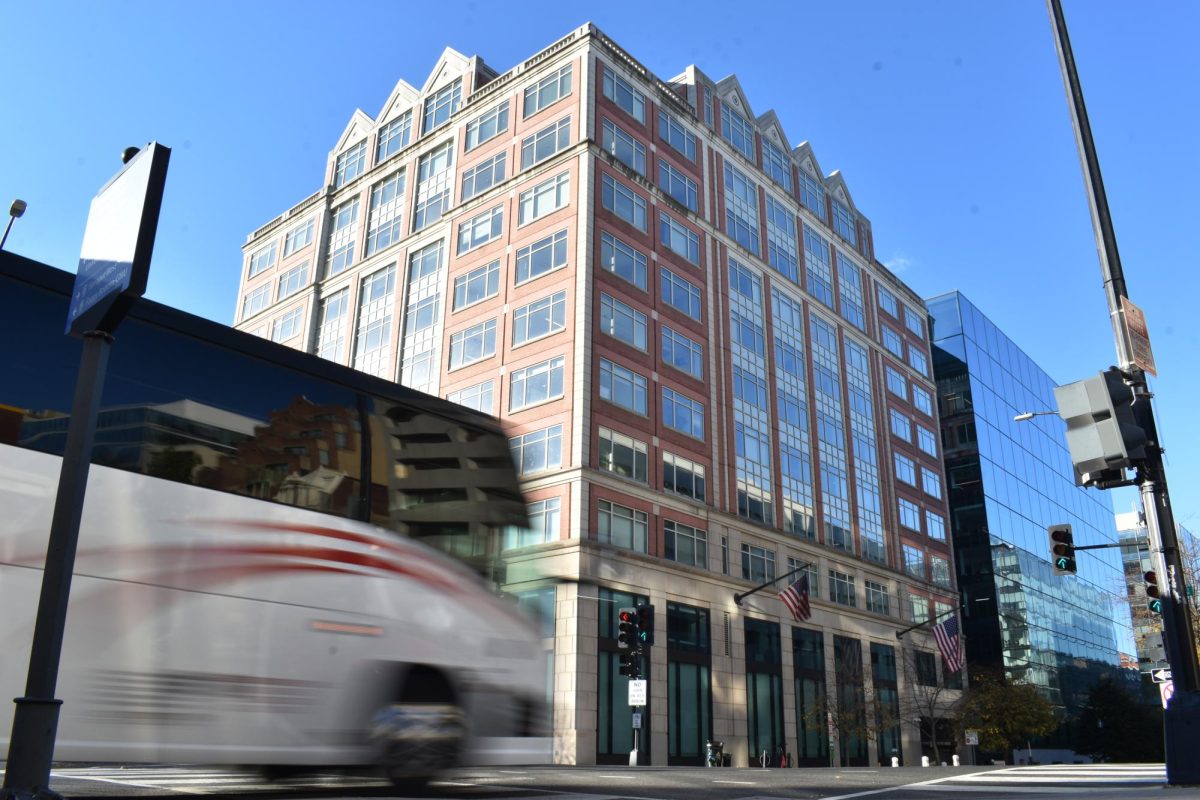Officials announced the purchase of 2001 Pennsylvania Ave for $35 million in a release Friday.
The building will temporarily serve as a “swing space” for administrative and academic offices and will be managed by Carr Properties, its former owner, on behalf of GW while officials develop a long-term plan for the new property, according to the release. The University’s acquisition of the commercial office building comes after GW acquired Residences on The Avenue, an off-campus apartment complex, in February for $140 million and 600 19th St in December 2022 for $11.5 million.
The building is 161,000 square-feet with 67 percent of the space leased to third-party tenants, including Strada Education Foundation, according to the release. The release said 2001 Pennsylvania Ave, which is adjacent to James Monroe Park, will provide “immediate” revenue and cash flow toward GW’s endowment and reduce the University’s reliance on students’ tuition.
“This is a unique moment in the real estate cycle for the university to purchase this Class A asset that supports our academic mission,” Chief Financial Officer Bruno Fernandes said in the release. “The institution is making a strategic investment into the future by taking an asset at a great value on historic Pennsylvania Avenue.”
Class A properties are considered the highest quality property in their market and area with amenities and high-income tenants.
Fernandes said at a Board of Trustees meeting in October that GW’s endowment has dropped $200 million since February 2023 due to the depreciation of the D.C. real estate market. A Moody’s Investors Service rating of GW’s finances released in March states that GW’s purchase of The Avenue will boost the University’s investment income, which is largely comprised of GW’s real estate portfolio and accounts for 40 percent of the University’s wealth.
Associate Vice President and University Controller Neena Ali said at a Faculty Senate meeting last December that tuition made up 57 percent of GW’s operating revenue in fiscal year 2023. GW has been financially tuition-dependent for over a decade, but Fernandes said in May that officials have decreased their reliance on tuition revenue over the past five fiscal years.











